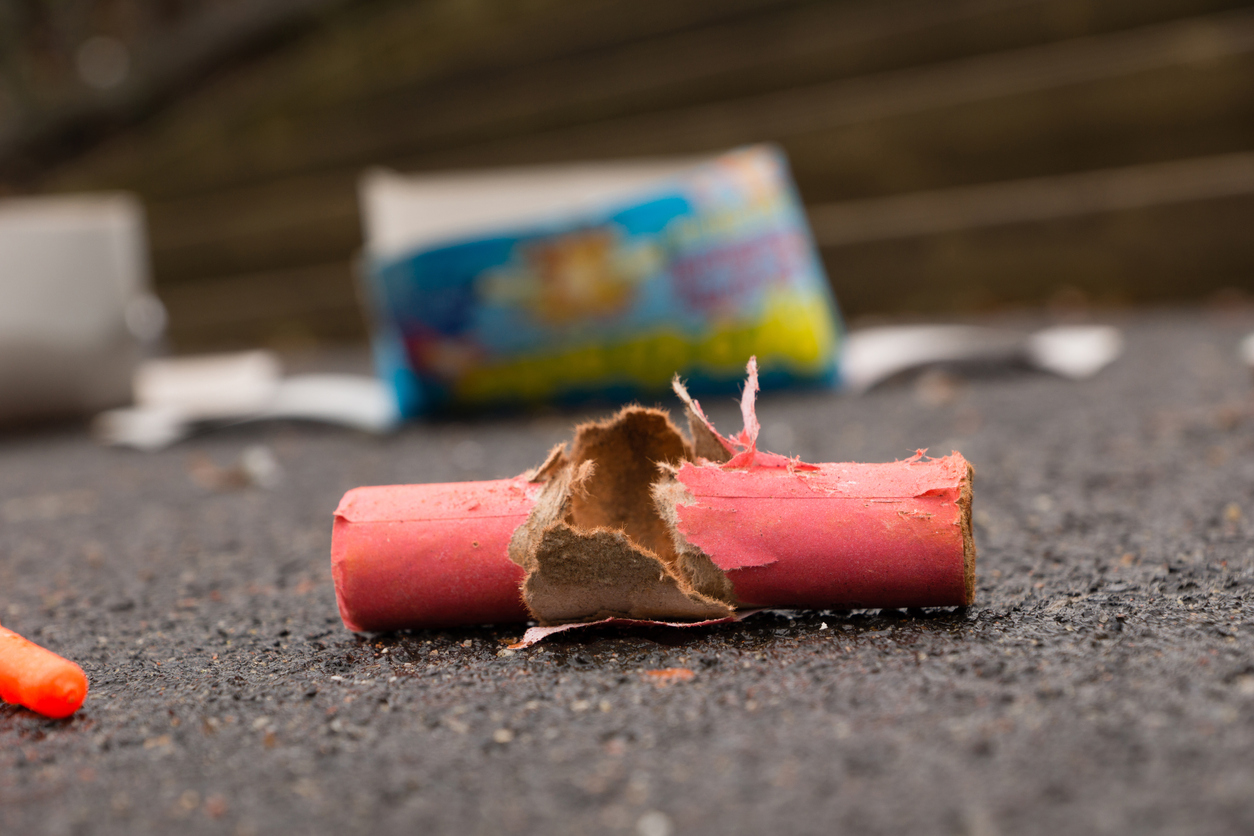
July may peak with Independence Day celebrations, but fireworks-related emergencies often continue long after the Fourth. Illegal or leftover fireworks still spark fires, injuries, and property damage throughout the month, keeping departments on alert. Responding to these volatile scenes puts firefighters at greater risk for operational missteps that may lead to liability claims. Insurance agents should confirm that their clients have firefighter insurance designed to address the complex risks of fireworks response.
Liability Exposures at Fireworks Scenes
Post-holiday fireworks incidents can be unpredictable, especially in crowded residential neighborhoods where emergency response is complicated by lingering spectators and poorly controlled ignition sources.
Property Damage From Misfired or Uncontained Fireworks
Fireworks can easily ignite brush, rooftops, vehicles, and landscaping, creating fast-spreading fires. When suppression efforts cause additional property damage — such as water, foam, or forced-entry damage — departments may face liability claims from homeowners or neighboring property owners. Coverage for these scenarios depends on the specific terms and conditions of the department’s liability policy.
Injuries to Civilians or Bystanders During Response
Crowds often remain after fireworks events, making emergency scenes more chaotic. Vehicle movement, falling debris, or other firefighting actions can unintentionally harm bystanders. Even when crews follow proper protocols, these injuries can lead to claims that require defense and legal support under a properly structured liability program.
Malfunctioning or Overheated Equipment
Summer heat combined with the stress of fire calls can overtax apparatus and tools. If a hose bursts, a ladder fails, or a pumper truck overheats mid-response, it can delay aid and worsen the damage, creating potential legal exposure for the department. Coverage for equipment-related incidents is not universal and should be reviewed to confirm how it applies during response operations.
How Firefighter Insurance Addresses Fireworks Response Risks
Commercial general liability policies designed for fire departments can provide important protections against fireworks-related liabilities, but coverage specifics vary by carrier and jurisdiction.
Coverage for Bodily Injury and Property Damage
These core components of firefighter insurance help departments respond to third-party claims for injury or property damage resulting from firefighting actions. Many policies can include language to extend coverage to volunteers or mutual aid partners, but this often requires endorsements or formal agreements to confirm proper protection.
Medical Payments and Healthcare Professional Liability
Medical payments coverage can provide limited no-fault benefits for minor injuries at the scene, such as treating bystanders with immediate care. For more complex treatment or triage, EMTs and paramedics may require healthcare professional liability protection, which is typically offered as an optional extension and not automatically included in every policy.
Fire Damage Legal Liability and Defense Costs
Property owners sometimes pursue legal action even when departments follow established protocols. Liability policies generally include a duty to defend, but it’s essential to clarify whether defense costs are inside or outside the liability limits, as this differs by insurer. Departments should work with agents to understand how their coverage responds in these situations.
How Insurance Agents Can Help Fire Departments Stay Protected
Agents play a proactive role in identifying coverage gaps and helping departments prepare for fireworks’ unique liability challenges.
Prompt Post-Holiday Policy Reviews
After the Fourth of July, it’s a good time to review claims activity and risk trends. Adjust policy limits or endorsements to reflect new apparatus, expanded mutual aid zones, or recurring community events that increase exposure to fireworks-related claims.
Encourage Training and Incident Reporting Protocols
Fireworks scenes can present complex legal challenges. Agents should encourage departments to maintain detailed standard operating procedures and strong documentation practices. Accurate incident reports support liability defense and help insurers resolve claims more efficiently.
Verify All Responders Are Properly Insured
Confirm that volunteers, auxiliary teams, and mutual aid responders are explicitly covered under the department’s firefighter insurance. Where necessary, recommend liability riders or special event endorsements to close potential gaps, especially for departments providing coverage at community fireworks events.
Keeping Departments Covered in Fireworks Season
Fireworks don’t end on July 4, and neither do the risks. Tailored firefighter insurance helps departments stay protected from injury, property damage, and legal fallout after high-risk calls. Agents should review and clarify policy language now, ensuring departments are ready for any lingering fireworks activity. For more insight on summer preparedness, explore these summertime safety tips for firefighters or review fireworks safety data from the National Fire Protection Association.
Contact us today to learn how Provident FirePlus can help safeguard your fire department clients during fireworks season and beyond.
About Provident FirePlus
Founded in 1902, our rich history involves the creation of custom firefighter insurance benefits in 1928. Today, Provident FirePlus continues to be a pioneer in developing insurance programs for firefighters, EMS providers, municipal entities, and law enforcement. In addition, we provide Special Risks insurance for various volunteer and nonprofit groups. Give us a call today at (412) 963-1200 to speak with one of our representatives.

